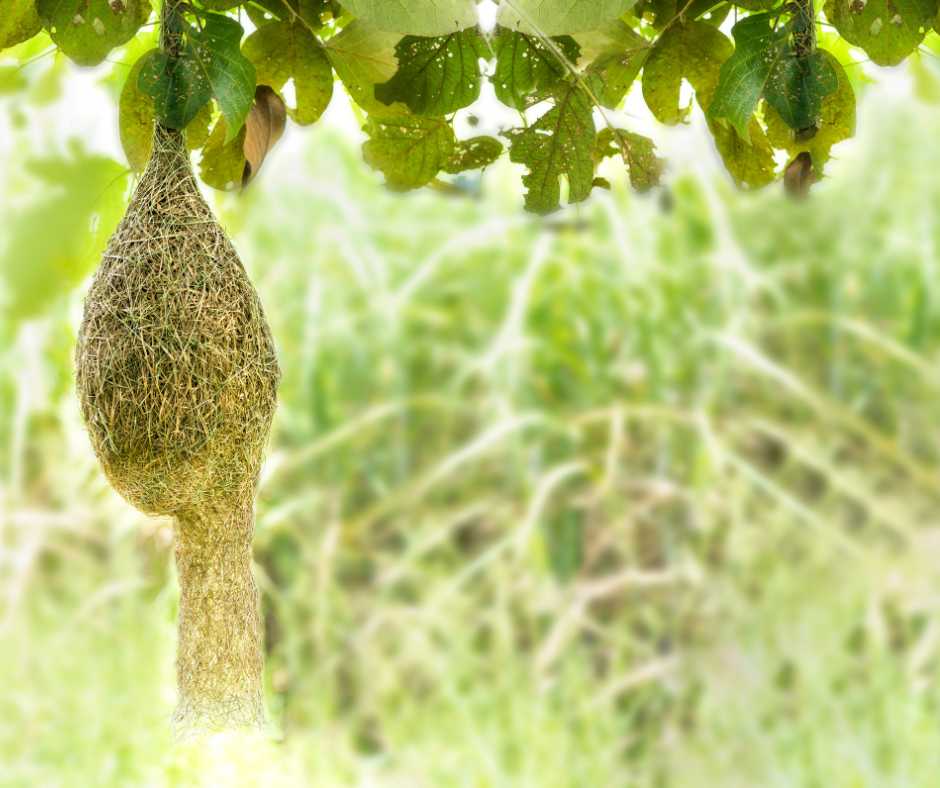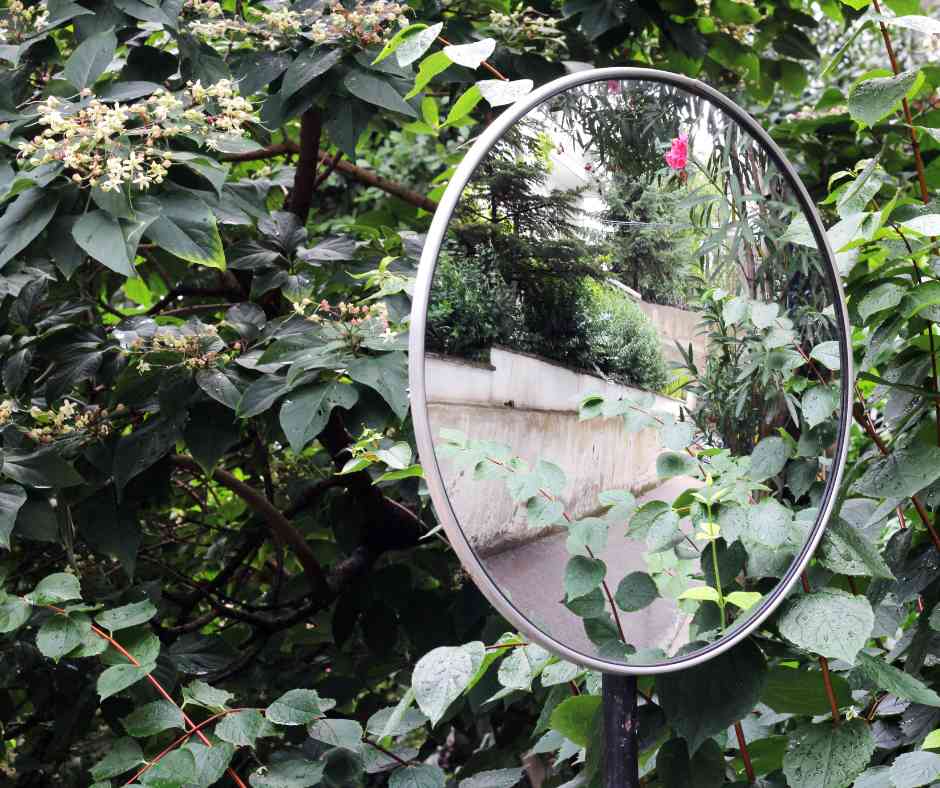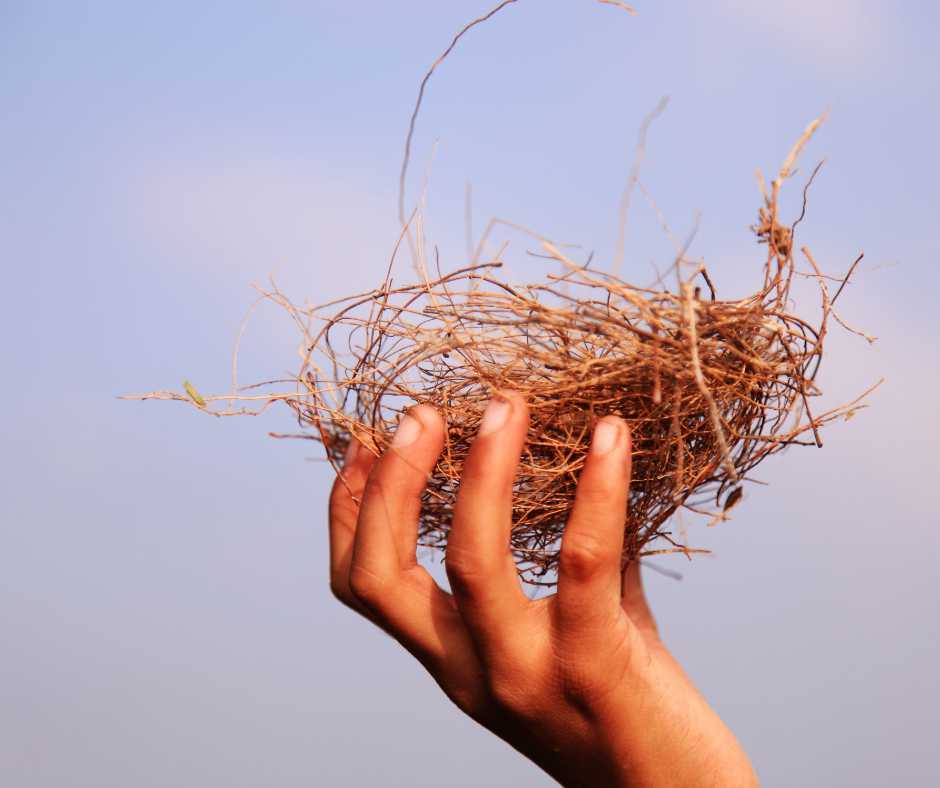Do you want to know how to stop birds from nesting where they shouldn’t?
To prevent birds from nesting: Use roosting spikes, netting, peppermint oil, clean yards, reflective objects, don’t feed, mirror distractions, porch protectants, gutter spikes, visual/audio deterrents, motion-activated lights/sprinklers, seal entry points, and slope ledges for a bird-free, harm-free solution.
We’re diving into safe and innovative ways to keep birds from turning your home into theirs. From using spikes and netting to trying out some natural scents, we’ll show you how to encourage our feathered friends to nest elsewhere gently. Plus, we’ll touch on safely removing a nest if one pops up and share some nature-friendly tips to keep birds at bay.
So, keep reading if you’re looking for peace without disturbing your winged neighbors. We promise to keep it simple and helpful, like chatting with an old friend. Let’s keep our homes comfy for us and safe for the birds, shall we?
Why Stop Birds from Building Nests on Your House
Finding a bird’s nest at your place can be calm because it lets you see nature up close. But soon, you might notice some problems. Birds make nests where they shouldn’t make a big mess, be unhealthy because of their droppings, damage your house, and even cause trouble with other animals.
Sometimes, their nests can block parts of your home, like vents or drains, which could cost much money to fix. Birds can also get very protective of their nests, which might scare you or your pets.
But remember, birds aren’t trying to make problems for us on purpose. They’re just looking for a safe place to care for their babies. We need to find a way to live together without causing trouble for each other.
By finding gentle ways to keep birds from nesting in our houses, we can keep our homes safe and help the birds. Doing this keeps our houses in good shape and is also suitable for the birds around us.

Understanding Bird Behavior: The Key to Effective Deterrence
Birds look for safe spots to lay eggs and care for their babies. They like places close to food, safe from bad weather, and away from animals that might hurt them. Sometimes, they think your house is the perfect spot because it has many hidden and cozy places. But we can help guide birds to better spots without being mean.
We can make our homes less welcoming by making small changes. For example, if we know birds like quiet places, we can keep those areas busier. This way, birds will choose another place that’s safer for them. Doing this helps us and the birds.
We maintain our homes clean and secure, and the birds find better homes for their families. It’s a kind way to live together with nature.
Effective Bird Deterrence Strategies for Your Home
To maintain a bird-free zone around your home without causing harm, consider these concise and humane deterrent methods:
- Deploy Bird Roosting Spikes: These spikes signal birds that your property isn’t a welcoming spot for landing or nesting. They effectively keep birds at bay from favorite hangouts like ledges and window sills without causing them harm.
- Create Barriers with Netting: Wrapping potential nesting areas, such as eaves or bushes, in netting acts as a gentle blockade, deterring birds from nesting in these sheltered spots. If birds are getting into one particular space, you can block entries with bird netting or fences.
- Use Natural Repellents: Birds are repelled by certain scents, much like insects. Spraying natural repellents like peppermint or citronella oil around your property creates an invisible barrier that birds prefer to avoid. Discover various natural homemade insecticides that can keep your garden thriving without harming the planet, which can also be effective in deterring birds.
- Maintain Your Yard: A clean garden reduces nesting materials, discouraging birds from settling. Removing leaves, twigs, and debris keeps your outdoor space tidy and unattractive to birds looking for nesting materials.
- Reflective Objects: Items like mirrors or shiny tape can startle birds, thanks to the light reflections and moving shadows they create, making your property less appealing for nesting.
- Stainless Steel Bird Spikes: Offering a long-term solution, these spikes are ideal for areas previously targeted by birds, preventing future nesting attempts with their durable design.
- Don’t Feed the Birds: Feeding birds can encourage them to nest nearby. Keeping feeders away from your home allows you to enjoy birdwatching without the proximity of nesting.
- Mirrors for Distraction: Strategically placed mirrors can confuse birds with their reflection, encouraging them to find less disorienting areas to nest.
- Protect Your Porch: Employing deterrents like citrus sprays or ultrasonic devices keeps porches, a favored nesting spot, free of birds.
- Gutter Spikes: To prevent birds from nesting in gutters, install gutter spikes. It keeps gutters clear for water flow and deters avian architects.
- Visual and Auditory Deterrents: Irregular sounds and sudden light changes disturb birds, making your property an undesirable nesting location.
- Motion-Activated Deterrents: Lights and sprinklers activated by motion can surprise birds, encouraging them to seek more predictable environments.
- Block Entrance Holes: Sealing small openings in your home’s exterior prevents birds from accessing potential nesting spots.
- Slope the Ledges: Adjusting the angle of ledges and sills makes them unsuitable for nesting, pushing birds to seek alternative sites.

By implementing these strategies, you can effectively discourage birds from nesting around your home, ensuring both the safety of your property and the welfare of the birds.
What Repels Birds Naturally?
Nature has its way of keeping birds away without making them upset. Plants like lavender and smells from oils such as peppermint and lemongrass are like invisible fences for birds. We might love how they smell, but birds don’t feel the same way, so they stay away.
You can mix these oils with water and spray them around places where birds might want to nest to keep them from staying there. Garlic also works because its pungent smell isn’t something birds like.
You can put garlic around your garden or make a garlic water spray to make your yard less attractive to birds but still okay for them. These tricks help keep birds from nesting where they shouldn’t and make our outdoor areas smell nice. It’s a way to enjoy our gardens without bothering the birds.
How to Safely Remove a Bird’s Nest from Your House
Finding a bird’s nest at your home requires a careful approach, especially since many bird species are protected under laws like the Migratory Bird Treaty Act. Here’s how to responsibly and legally remove a nest:
- Determine Nest Activity: First, observe if the nest is active. Active nests, indicated by bird traffic or sounds of chicks, are off-limits for removal until they’re vacated to comply with wildlife protection laws.
- Wait for the Right Time: Patience is crucial. Wait until the nesting season concludes, and the birds naturally leave the nest. This period varies, so understanding the breeding cycle of local birds can be helpful.
- Understand Local Regulations: Different areas have specific rules about nest removal. Some might require permits or have guidelines on proceeding, so it’s essential to be informed.
- Use Protective Gear: Wear gloves and a mask to protect against potential diseases or parasites when removing a nest.
- Gentle Removal: Carefully take the nest down, minimizing disturbance to its structure.
- Clean the Area: Disinfect the spot where the nest was located to prevent the attraction of other animals and eliminate health risks.
- Prevent Future Nesting: Implement deterrents like netting or repellents to discourage birds from rebuilding in the exact location after removal.
Adhering to these steps ensures the respectful and legal removal of bird nests, balancing the safety of your home with the protection of wildlife.
You may also read: How to Keep Birds Away from Patio

People Also Asked
Will bird spikes hurt the birds?
Nope, bird spikes are like a gentle reminder for birds to keep moving. They prevent landing without causing harm.
Is removing a bird’s nest with eggs or chicks illegal?
Yes, it’s against the law in most places to disturb a nest that’s in use due to bird protection laws. It’s always best to wait until it’s vacated.
What’s the best time to install bird deterrents?
Spring is ideal before the nesting season kicks off, but there is always time to start deterring future nesters.
Do I need to maintain bird deterrents once they’re installed?
Most deterrents are set-and-forget, but a quick check now and then ensures they’re still practical and in good condition.
Wrap Up
Sharing our space with birds doesn’t have to be a hassle. With some understanding and clever strategies, we can enjoy their presence without letting them take over our homes.
Remember, it’s all about coexisting with these beautiful creatures in a safe and respectful way for everyone involved. Do you have more questions or need a hand with a particularly tricky bird situation? Check out more tips on our website or seek expert advice.

